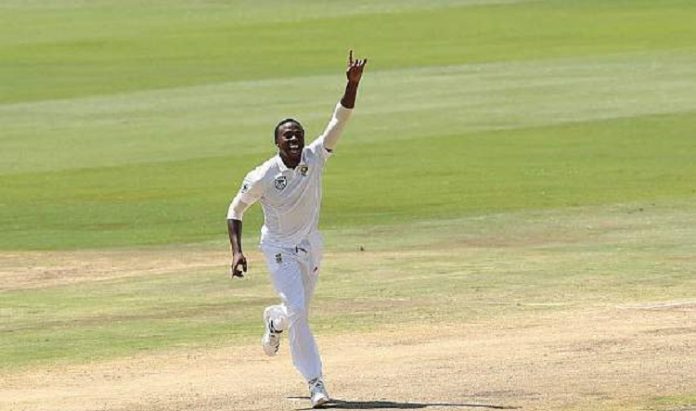
Kagiso Rabada has been cleared to play in the third Test against Australia this week after a judicial commissioner ruled there was no conclusive evidence that the South African fast bowler’s contact with Steve Smith in the second Test was deliberate.
Rabada had been found guilty of a level two offence by match referee Jeff Crowe in the wake of the match, imposing a sanction of three demerit points that triggered a two-Test ban. However, Rabada appealed the verdict, arguing that the shoulder contact was accidental in an appeal hearing that lasted almost six hours on Monday (March 19).
His case was delivered by advocate Dali Mpofu and heard by judicial commissioner Michael Heron over a video call. Heron decided to overturn Crowe’s verdict and downgrade Rabada’s charge and sanction to a level one offence. Although the fast bowler still picked up one demerit point and was fined 25% of his match fee, he will be able to play the third Test at Newlands on Thursday because his accumulated total of seven demerit points falls short of the eight-point mark that carries a ban.
“The key issue is whether Mr Rabada made ‘inappropriate and deliberate physical contact’ with Mr Smith, Heron said in the summary of his verdict. “I am not ‘comfortably satisfied’ that Mr Rabada intended to make contact and I therefore find him not guilty of the charge under 2.2.7.
“I am entitled, however, to consider whether the conduct involved constitutes a lower level offence. I consider the conduct was inappropriate, lacked respect for his fellow player and involved non-deliberate and minor contact. The actions contravened the principle that a dismissed batsman should be left alone.
“I consider a penalty of the imposition of a fine of 25% of the applicable match fee to be the appropriate penalty for the breach of Article 2.1.1. As a consequence, 1 demerit point accrues. Mr. Rabada will be well aware of the consequences of any further breaches of the code.”
Indeed, Rabada is still just one infringement short of picking up a suspension, having broken the code of conduct on five separate occasions in the last 14 months.
South Africa will nevertheless be thrilled to have their in-form fast bowler available for the remainder of a crucial series that is currently level at one match apiece with two Tests to play.
The verdict also represents something of a victory in their bid to shine a light on the inconsistencies in the code of conduct. This is the third time that they have challenged a charge, but the first that they have had a decision overturned.
Reacting to the verdict, ICC chief executive David Richardson said: “The ICC wholly accepts today’s decision and I would like to thank Mr. Heron for overseeing the hearing in a short time frame before the next Test starts in South Africa.
“This is perhaps an opportune moment to remind all players of their responsibilities to maintaining a standard of behaviour which sets a good example to players at all levels of the game, especially the young players. We want to see the game played with skill, passion and respect for the opposition, the match officials and the laws.”

















